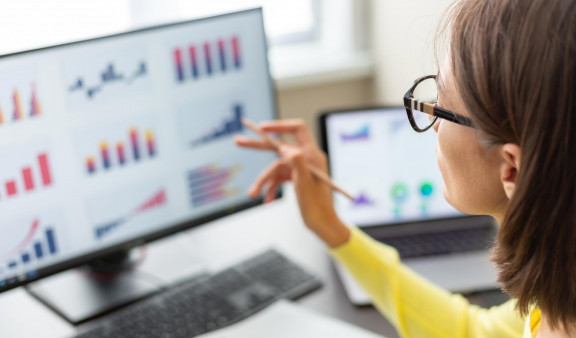
Influencer Interview: Fadi Ghandour, founder of Aramex
Fadi Ghandour founded Aramex, the largest logistics company in the Middle East, in 1982.
Straight out of university and with the help of his father’s friend; the young Jordanian created Arab American Express with the intention of becoming the leading logistics company in the region.
Today, Aramex is the first Arab company to be listed on NASDAQ, has approximately 13,800 employees in 54 countries and has close to $1Billon in annual revenue. Aramex has alone had a huge impact on the growth of ecommerce in the region thanks to its services like Shop And Ship as well as REDe. The company is also continuously growing its logistics capacities, by investing in small business including the startup What3Words which aims to solve difficult addresses, particularly in developing countries.
In 2010, after nearly thirty years at the helm of the company, Fadi sold his shares and started Wamda, a venture capital fund focused on growth stage technology companies in the Middle East. He is also particularly interested in ecommerce as Fadi recently announced the plans to raise $500 million for a second venture capital solely focused on ecommerce start-ups in the region.
We spoke to Fadi Ghandour recently about his thoughts on the ecommerce industry and it’s growth in the Middle East.
You started Aramex in 1982, long before the surge of ecommerce in the region and the world, to solve a regional delivery and shipping issue. At what point did you or the company understand the significance of ecommerce and decided to be part of that growth?
Aramex’s early days were dedicated to facilitate the delivery of letters and packages for global companies in the Middle East and other adjacent markets. We served FedEx, Airborne Express, Purolator, Burlington Northern and hundreds of other smaller companies. So over the years we build probably the most extensive delivery network in the MENA region. We also went about building a local/domestic delivery last mile infrastructure that was unique and in today’s world we can call it visionary. This domestic infrastructure was the core of how we took advantage, and actually, we were the enablers of e-commerce. Without Aramex early investment in building the last mile network, e-commerce in the region would have been delayed and more expensive.
"Without Aramex early investment in building the last mile network, ecommerce in the region would have been delayed and more expensive."
This is for background, but to answer your question, Aramex not only built a logistics network to deliver for ecommerce, before the internet we actually brought the predecessor of the internet commerce to the region. We brought the catalogue mail order companies to the region and enabled people to shop and get their orders delivered from Europe and the US. That was in the early 1990s through a product we called “Shop the World”. From there on we just moved with technology and when the internet happened we were there, no one else in the region was ready for it nor thought the clients would buy online. And so the Aramex domination in this space is a story of over 20 years of building the infrastructure for it.
Can you tell me how services like Shop and Ship and REDe came to being and what their impact was on the regional ecommerce market?
Aramex today thinks it is an infrastructure company, it is the enabler of commerce and ecommerce in the region. So everything we do is to keep this view in mind. So whatever retailers or etailers need or lack, Aramex will provide in more ways than you might even think. Warehousing, pick and pack, call centers, payment solutions, API integration, even investing in startups in our space.
What is your opinion on the growth of ecommerce in the region and how do you see it evolving in the future and how should Middle Eastern companies react to it?
E-c0mmerce in the region is booming but it is in its infancy, it is no more than 1% or 2% of retail. In the US it is more than 10% so we have a long way to go and the growth is going to be staggering. It is also enabling small businesses to sell online, and even individual micro sellers via Instagram, Facebook and other means. Anyone ignoring it will suffer. All commerce will eventually go online or be online/offline they go together. So whoever you are, be ready. By 2020 more than 250 Million Arabs will be online buying and selling and interacting, if you are not there, you are not in business.
"By 2020 more than 250 Million Arabs will be online buying and selling and interacting, if you are not there, you are not in business."
How do you see the future of shipping evolving, particularly in the Middle East and other developing regions?
Shipping and logistics will change and adapt to the needs of the market. Technology, artificial intelligence and big data will be our way of serving the clients. We will also adapt to the flexible delivery systems that have been introduced by companies like Lyft, Careem , Didi and Uber. The moto today is, change, be agile and lead, to deliver for the high demand in consumer ecommerce needs or DIE.
"The moto today is, change, be agile and lead, to deliver for the high demand in consumer ecommerce needs or DIE."
Can you tell us about the investment in a start-up like What3Words and how it is in line with Aramex? How do you see a startup such as this continuing what Aramex started in shipment to areas with difficult addresses?
Aramex will continue to invest in companies that bring technology, knowledge and new markets. They can be startups or more mature, but we will invest to ensure that we are able to lead and compete in the global markets that we operate in.